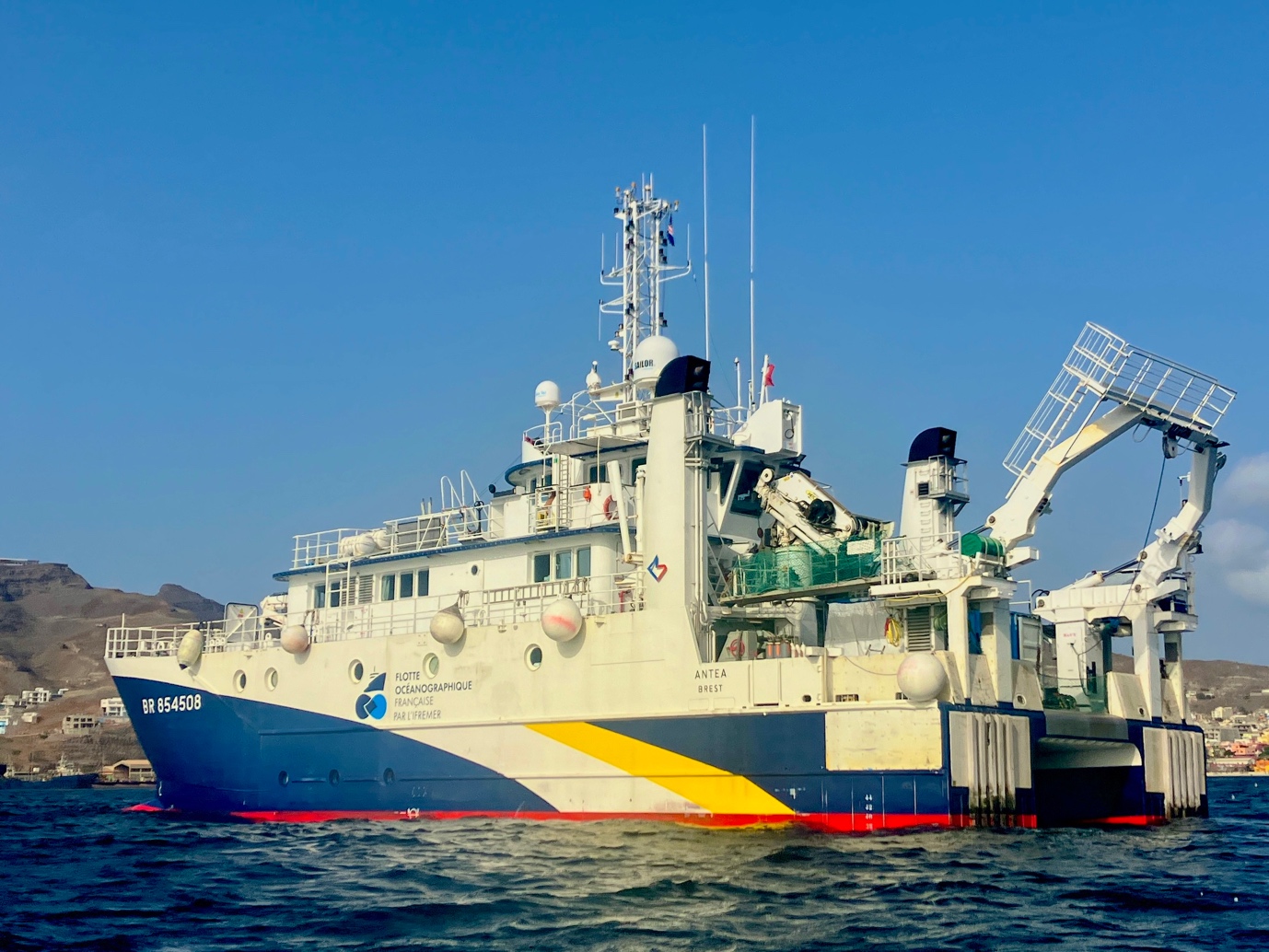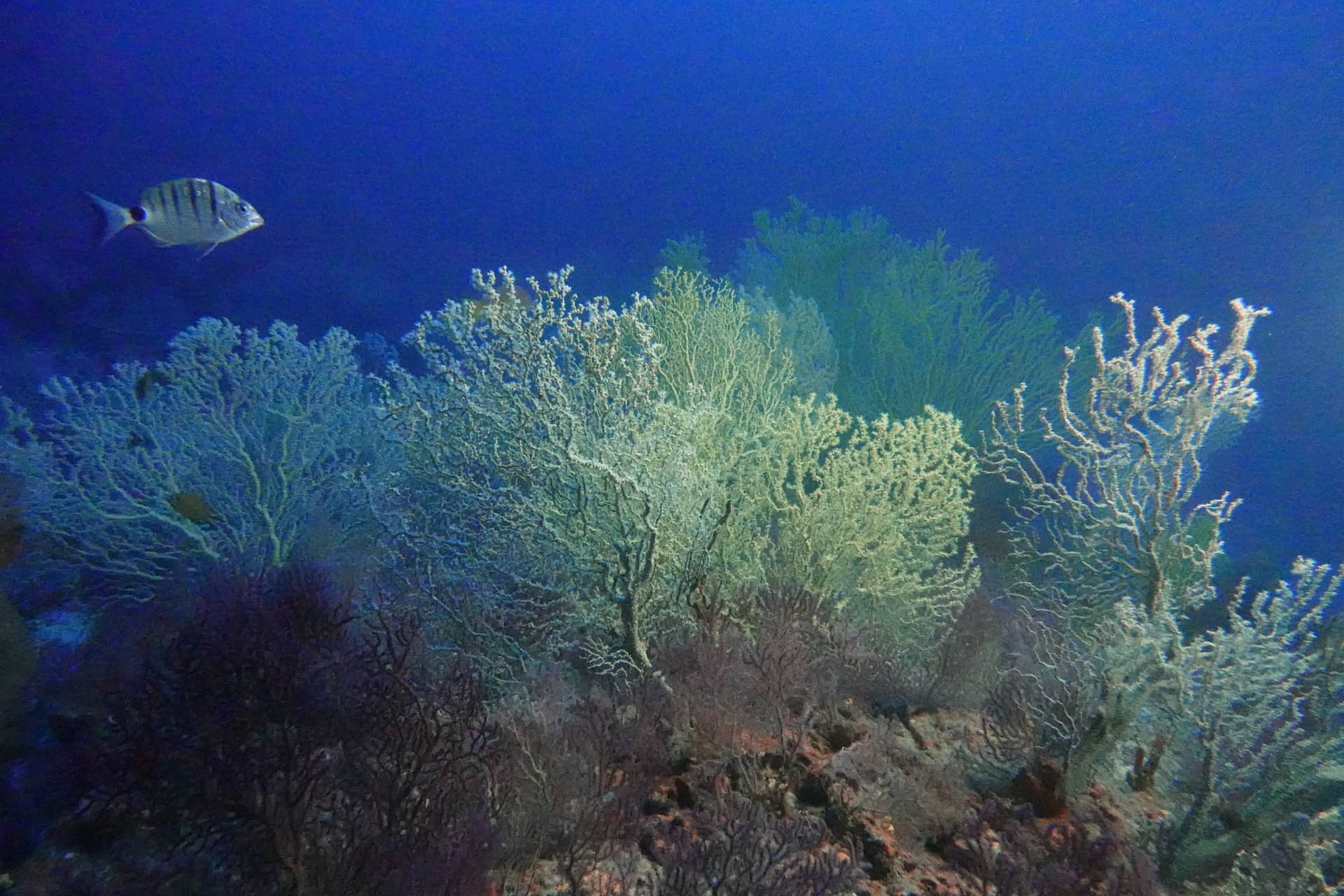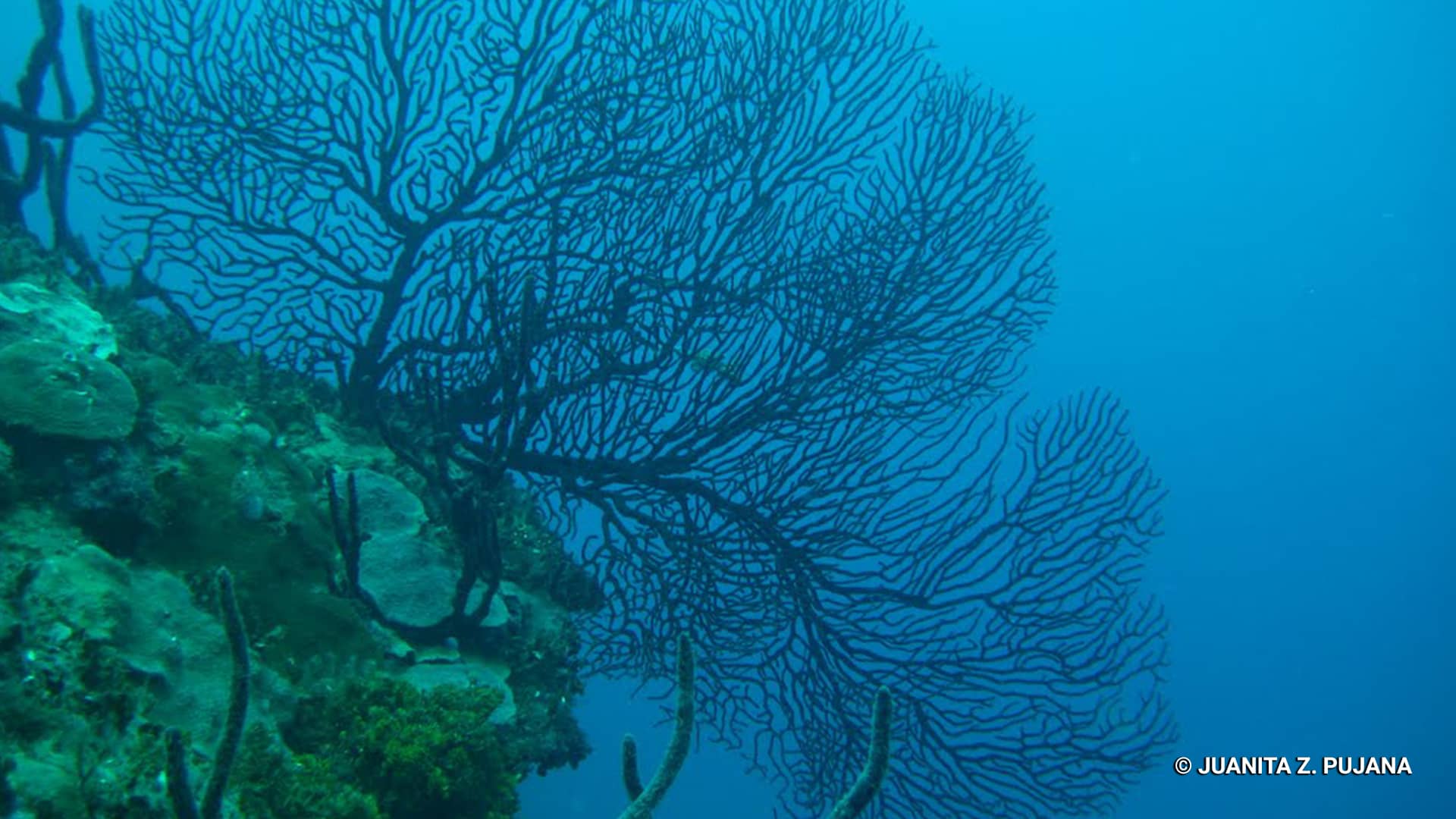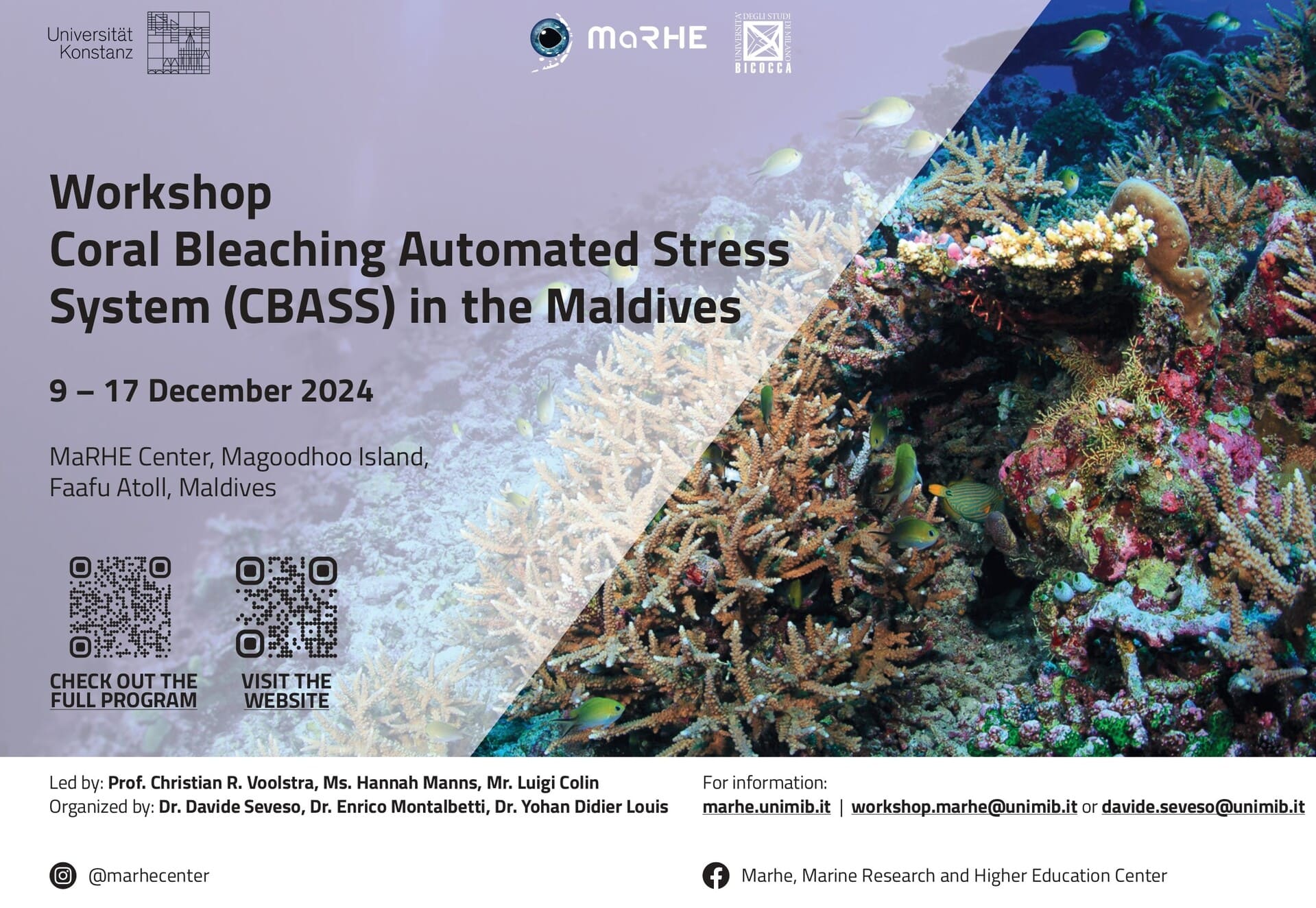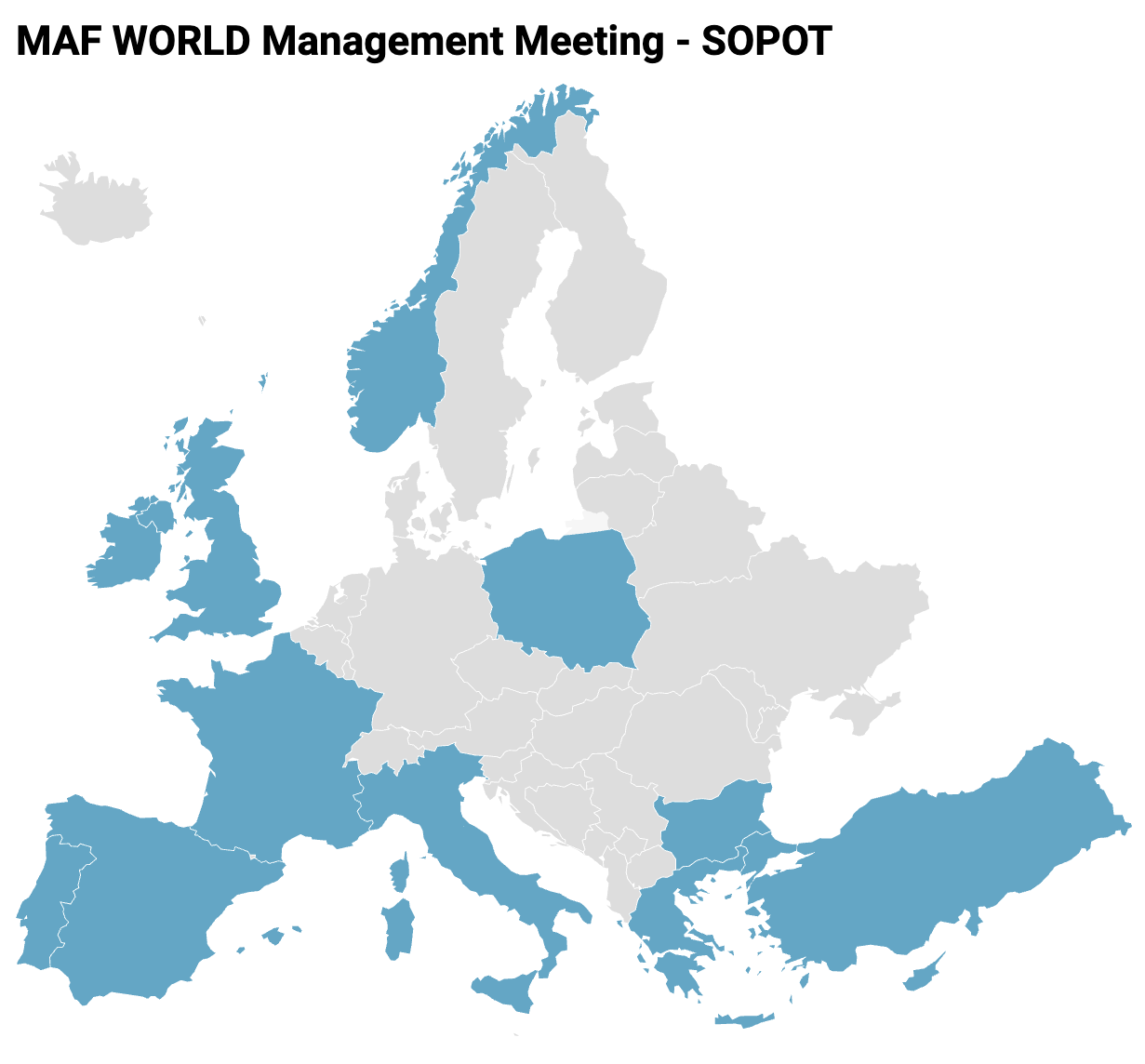This mission is aimed at describing the biodiversity of Cabo Verde archipelago marine fauna. Leaded by Cecile Fauvelot (IRD, ObservatoireVillefranche sur Mer), on board the ANTEA(Fig1), an oceanographic vessel of the French fleet. The Mission is divided in two campaigns with a duration of 20 days each, focused on shallow (Campaign 1) and mesophotic environment (Campaign 2).
Between August 3rd and 23rd, the second campaign started, leaded by Lorenzo Bramanti (LECOB-CNRS, ObservatoireOceanologiqueBanyuls sur Mer).
Two teams of scientists/divers shared the ANTEA boat during this campaign: the French team, with Lorenzo Bramanti, Francisco Otero-Ferrer as scientists (both members of the COST action MAF-WORLD) and Jerome Hontarrede as dive officer, and the American/Brazilian team, with the scientists Luiz Rocha, Hudson Pinheiro and Juan Pablo Quimbayo, and the dive officer Mauritius V. Bell
While the American/Brazilian team was focused on the description of the mesophotic fish fauna, the French team was focused on sessile benthic fauna, mainly on Marine Animal Forests (MAFs)of Cabo Verde deeps.
A limited number of mesophotic animal forests have been described so far, also because their geographic distribution is poorly known. Those habitats give structural complexity to the substrate providing shelter to different species (Fig 2) and consequently increasing the biodiversity.
During the expedition, we had the opportunity to dive in different islands at depths comprised between 60 and 100 meters. To reach those depths, we use Closed Circuit Rebreathers (CCR) with hypoxic mixed gases (TRIMIX). Those systems allow to recycle the gas breathed, limiting the consumption, which at those depths would strongly limit diving time. The electronics of the CCRmaintain a constant oxygen partial pressure, de factoproviding the perfect gas composition at each depth.
Thanks to this technology, we were able to spend a considerable amount of time at mesophotic depths (Fig 3), which allowed us to observe, and quantitatively describe extensive black coral forests (Fig 4), which species composition changes with depth, and is probably linked to the fish species composition.
The observation highlights the importance of MAFs in mesophotic habitats and supports the idea that despite the reduced light conditions, mesophotic environments have an important role in the ecosystem functioning, hosting extensive surfaces of MAFs (Fig 5).
Data collected in the framework of the DISCOVER mission will be shared with the MAF WORLD COST Action, and used by the different working groups (WG). With these results, we will be able to draw more precise maps of the MAF distribution (WP2), evaluate MAF functioning (WG6) and threats (WG3) and disseminate the outcomes to give advice for their conservation (WG8).
